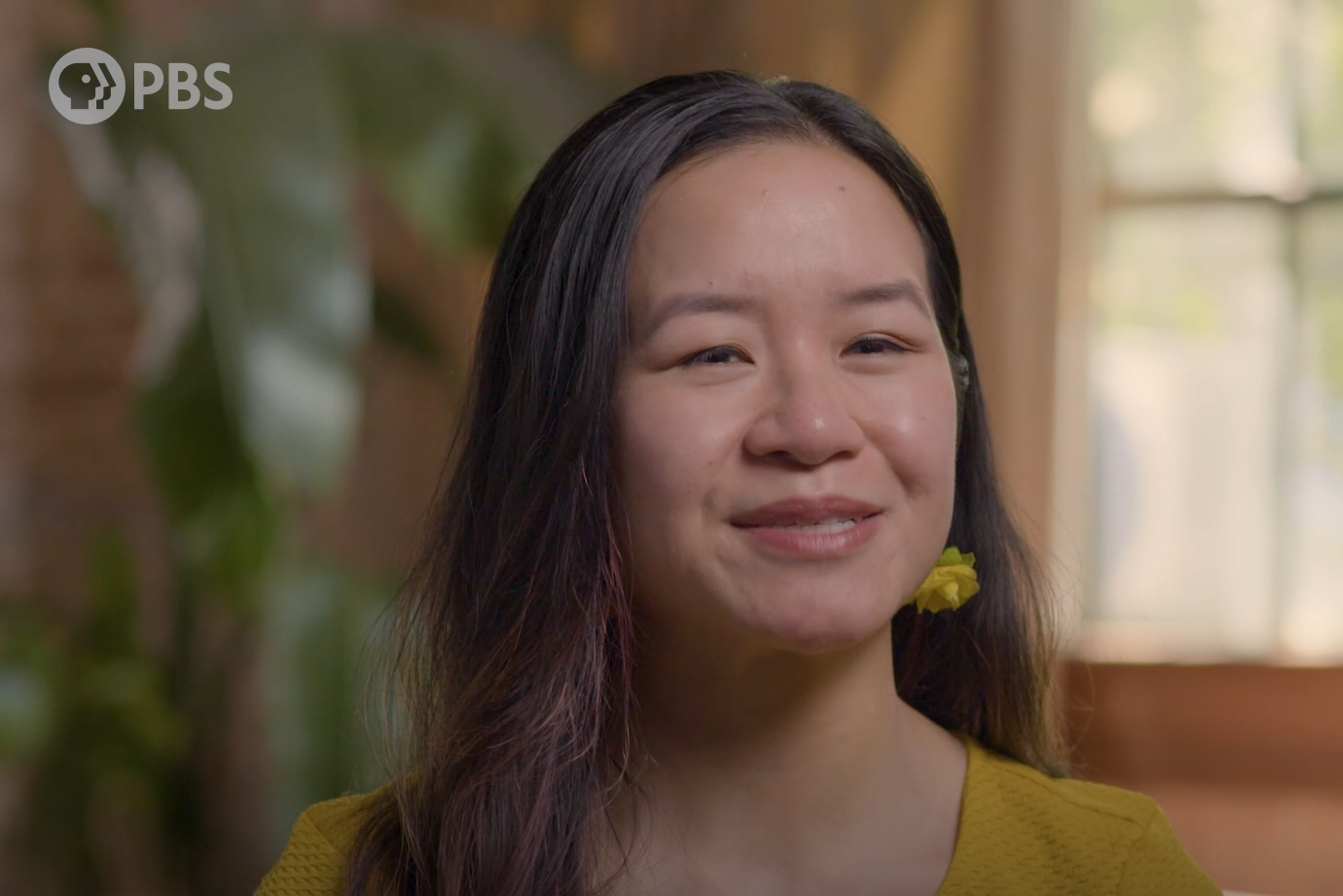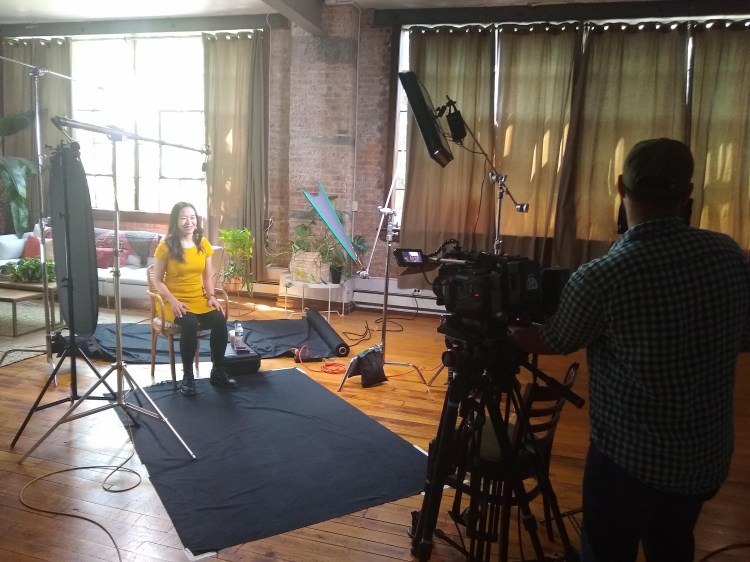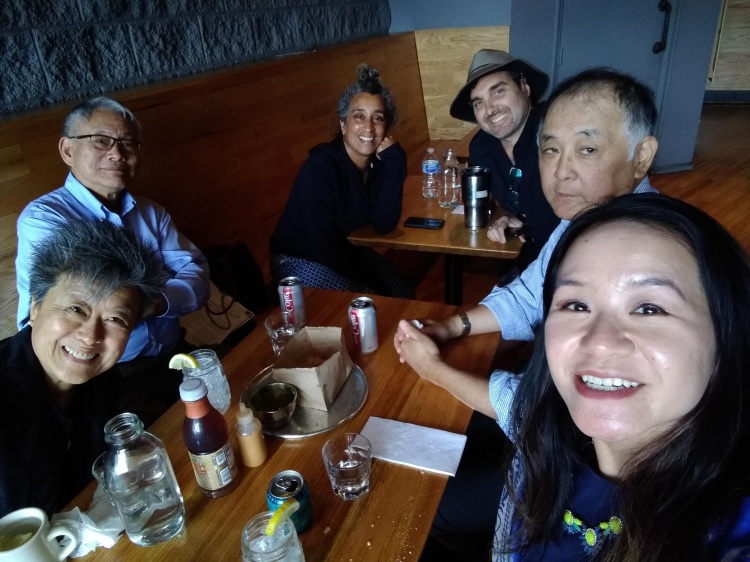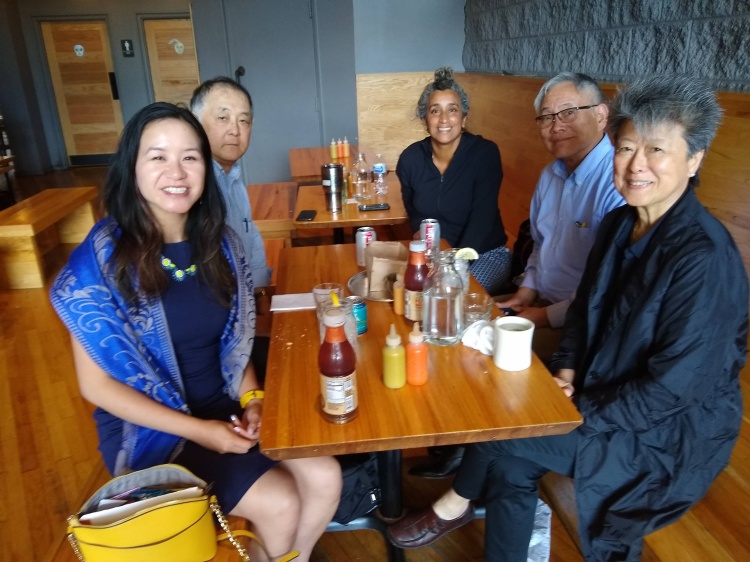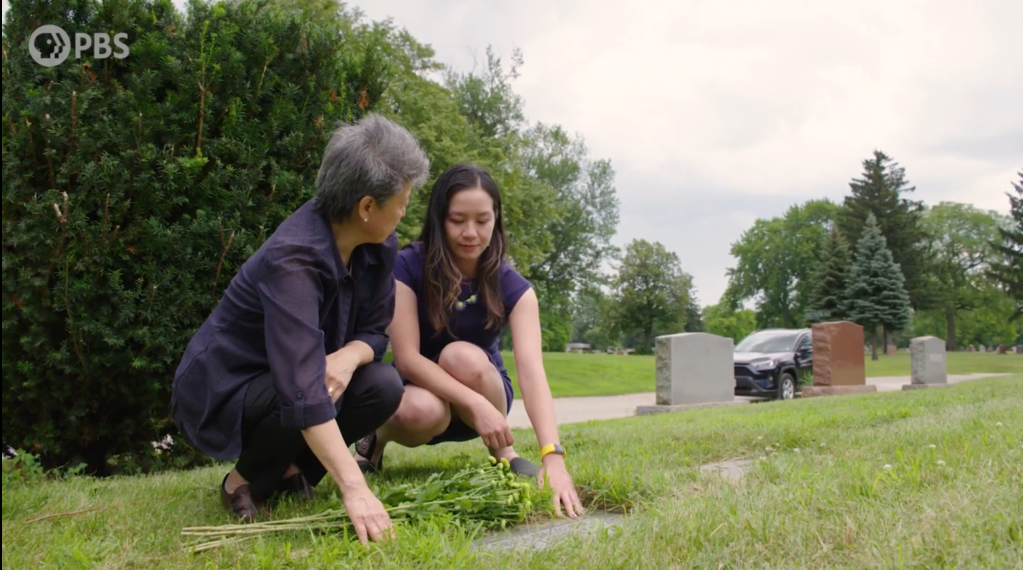I’m always haunted by the murder of my cousin Vincent Chin and his impact on the Asian American movement. I shared his legacy and that of his mother, my great-aunt Lily Chin, in my PBS debut (!!!), a digital feature for “Asian Americans”, a 5-hour documentary series (YouTube/Facebook/Instagram). More on teaching and “Asian Americans” below!
I can’t believe I am still “creating” and pushing out new work during this #COVID19 pandemic. Another thing I’m immensely proud of my latest interview in The New Republic about remote learning, speaking up as a teacher about how it has been extremely difficult trying to work around the inequities of public schooling before and during this pandemic. It has been shared all around by teaching communities online, and I hope has complicated the narrative around what remote learning and schooling looks like right now.
I have 12 students, and I have three paraprofessionals in my classroom. And in our class alone, we’ve had something like 13 deaths, among our students’ and staff members’ families. So it’s been a challenge trying to roll out assignments while also supporting the mental health needs of my students, their families, and staff: Is this assignment I’m pushing right now really important when my students’ relatives are dying or sick?
-Annie Tan, “I’m Teaching From Home and Don’t Know How Long We Can Keep This Up” in The New Republic, May 5th, 2020
I was asked this weekend, “How are you getting through this coronavirus pandemic?” My answer, among many others, is on a list (published yesterday) from HuffPost Asian Voices of 21 Asian American-produced media recommended by Asian American creators like me (!) for you to consume at home! I have read, heard, and seen a number of these recommendations, but I am particularly excited about Cathy Park Hong’s Minor Feelings, which I just bought and can’t wait to dig into! Below is my recommendation for how I’m getting through this coronavirus:
“The Yan Can Cook Book” by Martin Yan and “Wisdom of the Chinese Kitchen” by Grace Young
“My mom has always expressed her love, not through words lost in translation, but through food, whether through her Cantonese steamed fish with ginger and scallions, pork spare ribs with black bean sauce or soy sauce chicken. So, while distancing from Mom, when not getting takeout to support Chinatown restaurants, I’m learning my mom’s dishes. I remembered watching Martin Yan as a kid on PBS and whipped out his old-school ‘The Yan Can Cook Book’ to make those spare ribs. And I picked up ‘Wisdom of the Chinese Kitchen’ by Grace Young, a chef who’s been chronicling Chinatown coronavirus stories, then picked up a whole fish from a still-open Chinatown seafood market and figured out, with Grace’s help, how my mom would make that fish. Last week, Mom came to Chinatown for her monthly trip to the Chinese pharmacy, bringing compliments on my WeChat fish photo and multiple containers of her soy sauce chicken. And I knew she’d always be with me.”
And now for the meat of this post…
On PBS’ “Asian Americans”
I finished watching the 5-hour “Asian Americans” PBS documentary series last night (which premiered this Monday and Tuesday on PBS and which you can stream free all #APAHM /watch on Amazon Prime), and just WOW. I knew a good number of larger themes in Asian American history, like exclusion and anti-Asian immigration laws, but the documentary series, particularly the 3rd episode “Good Americans” walked through the “model minority myth,” its use to attack non-“model” Black and Brown groups, and the subtle ways it was (and has) been used to subvert white supremacy, which is so nuanced, especially today. I watched an interview with Geeta Gandbhir, the director of the 5th episode “Breaking Through” that the theme of the last episode was supposed to be “Justice or Just Us?” That is a larger question, especially with the coverage of the Rodney King Riots and Latasha Harlin’s murder, that we have to grapple with as an Asian American community.
There was so much packed into the documentary (I also ended up live-tweeting the whole 5-hour PBS “Asian Americans” documentary series in a thread if you want to read it all!). The first two hours were more than many of us had learned in our K-12 education! Yet there are SO many stories that still need to be told. And we, Asian Americans, have to be the ones to tell them.
Stream “Asian Americans,” free all this May #AsianPacificAmericanHeritageMonth, and watch on Amazon Prime! After that, watch my PBS digital extra feature on the legacy of my cousin Vincent Chin and great aunt Lily Chin (also on YouTube/Facebook/Instagram).
Filming PBS’ “Asian Americans!
I was really fortunate to be able to film with Geeta Gandbhir, the director of the 5th episode “Breaking Through,” ever wise in questioning and thoughtfulness, over two days, one day interviewing in late June 2019 in a Brooklyn studio, and then a 2nd day in multiple locations throughout the Detroit area. From my knowledge, I was supposed to represent one of a younger generation of activist in PBS’ “Asian Americans,” but again you can’t fit all of Asian American history into 5 hours!
I still can’t believe I was filmed for a PBS documentary (especially since I first learned about Vincent Chin through ANOTHER PBS documentary) even if my interview wasn’t included in the final cut of the documentary. I am constantly thinking about the legacy I want to leave for my students and, hopefully, my children one day, and hope this feature helps others also consider their legacy.
On the first day of filming in late June 2019, I shared my experiences growing up in Chinatown, how that led to me becoming a teacher, and how it’s important for my students and students of color to see themselves represented in their school buildings. I spoke on my work with CAAAV, which has been leading anti-racist housing and language justice-oriented tenant work for my Chinatown and for communities around New York City, and which was founded after the Vincent Chin case. I also spoke about CAAAV’s courage on and my advocacy during the Akai Gurley and Peter Liang case (which is how Renee Tajima-Peña, series producer on “Asian Americans,” knew my work in the first place), and how that writing led me to move back to New York City. While all of that didn’t end up making the digital feature or the documentary, I’ll continue amplifying those stories where I can (and actually doing some work around their karaoke fundraiser the rest of this week!) What DID end up in there was my story that I first shared at a Moth SLAM and then the Moth Radio Hour: I’m glad that story will continue to be amplified and that people will be inspired to fight on.
On the 2nd day of filming in July 2019, I was toured around by Helen Zia (!!!) for a whole day. Helen Zia was one of the lead activists on the Vincent Chin case and has since served as one of my idols and mentors through my life. We first visited Vincent and Lily Chin’s house, where my great aunt would make food for all the organizers- Lily had worked in the back of a restaurant and knew just how dirty the food could be back there, so she didn’t want the organizers fighting for her son to be fed that food. We walked over to the office where Vincent was supposed to start as a draftsmen, which was just blocks away, so he could be a good son to his mother Lily. We actually went into the Ferndale Public Library to use the bathroom and, on a whim, to see if any of Helen Zia’s books were in that branch- to no avail.
Helen and I filmed in front of the Ferndale plaque commemorating Vincent Chin’s death and legacy, then had lunch in the location formerly known as Golden Star Chinese Restaurant where Vincent Chin used to pick up shifts and where Asian American organizers, such as Ronald Hwang and Jim Shimoura, Asian American lawyers in Michigan back in the 1980s, organized to fight for justice. (I wish the digital feature had shown some of Helen’s, Jim’s, and Roland’s stories together, but, again, “Asian Americans” only had five hours!)
We went to the former McDonald’s site where Vincent Chin tried to run away from Eben and Nitz, where Vincent’s skull was bashed into the pavement with a baseball bat, and for which Ebens and Nitz never served a day in jail. And we bought flowers and brought them to Vincent Chin, Lily Chin, and David Bing Hing Chin’s graves at Forest Lawn Cemetery.
Of course, right at the end of the day at the cemetery, it began raining, and it felt right, like something new was coming. It was a long day, 9am-6pm, and full of emotion and rawness. I will never forget that day, knowing just how much work it took to build an Asian American movement, and how much more we have to build.
Watching the documentary now, I KNOW there are SO many stories that were missing- you can’t fit all of Asian American history into 5 hours. And so, we have to tell them. NO one will tell our stories for us. Without Lily Chin’s organizing and activism, no one would know Vincent Chin’s name today, and I take that with me every day. That’s why I’m dedicated to writing a book about my family moving forward, because no one else will. And that’s why I continue writing, and storytelling, and doing all the activism and organizing in the forefront and behind the scenes to make our society better.
For the last time, stream “Asian Americans,” free all this May #AsianPacificAmericanHeritageMonth, and watch on Amazon Prime! And, after that, watch my PBS digital extra feature on the legacy of my cousin Vincent Chin and great aunt Lily Chin (also on YouTube/Facebook/Instagram).
Rest in power, Vincent and Lily. Thank you for fighting for all of us to be able to tell our stories.
Thanks for reading,
Annie
